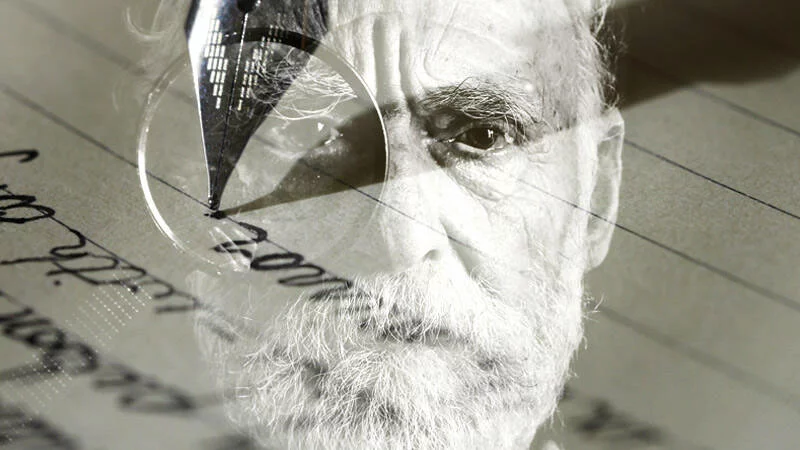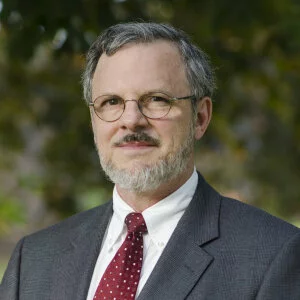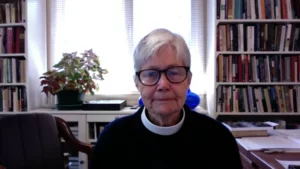Introduction: Theology and Philosophy (In General)
Lesslie Newbigin saw Western intellectual history as the confluence of two streams, one flowing from Greco-Roman antiquity, the other from the Christian Scriptures. The barbarian tribes that called Europe home during the medieval and early modern periods “were taught to think in Greek and Latin, but the story that shaped their thinking was the Bible.”Lesslie Newbigin, Proper Confidence: Faith, Doubt, and Certainty in Christian Discipleship (Grand Rapids: Eerdmans, 1995), 3.
Theology exists on the “borderlands” of philosophy and story, metaphysics and mythos. In so far as the Christian story speaks of the reality of God, is must do more than tell stories: it must venture into the realm of ontology. Dallas Willard thinks you have to be an ontologist if you want to understand Scripture. The NT authors themselves sometimes employ ontological language (e.g., Colossians 1; Heb. 1:3) and Jesus himself makes what we can only describe as a radically orthodox ontological claim in John 8:58: “Before Abraham was, I am.” C. F. D. Moule puts it well: “However sparingly the New Testament borrows the language of that country beyond the frontier [i.e., ontology], students of the New Testament discover themselves to beThe challenge for theologians is to work in these borderlands without being taken captive by philosophical systems. in some sense its citizens.”C. D. F. Moule, “The Borderlands of Ontology in the New Testament,” in The Philosophical Frontiers of Christian Theology: Essays Presented to D. M. MacKinnon, eds. Brian Hebblethwaite and Stewart Sutherland (Cambridge: Cambridge University Press, 1982), 10. The same could be said of epistemology.
The challenge for theologians is to work in these borderlands without being taken captive by philosophical systems. For the theologian’s ultimate allegiance is not to generalizations (“being” in general) but to the particulars, sometimes subversive but always stubborn, of the gospel (“being in Christ”).
Dru’s paper prompts me to revisit my own on-again-off-again “romance” with philosophy over the years. Full disclosure: I was a Philosophy/Religious Studies major at Westmont College, where I was taught that faith needed rational support (apologetics). However, at Westminster Theological Seminary, I was taught that philosophy was OK, provided it started with Christian presuppositions, and a regenerate mind—otherwise, not so much.
At Cambridge I was encouraged to find the right philosophical scaffolding as a prerequisite to speaking of God. I therefore hitched my wagon to the latest and most chic theory to come out of Paris, Paul Ricoeur’s hermeneutical philosophy. I eventually realized that I had let something non-theological into the methodological driver’s seat, something that, if I were to follow it consistently, would veer off the road of orthodoxy and lose what is of first importance: the reality of Christ’s bodily resurrection. I began to form the conviction that prolegomena had to be theological all the way down.
Theology, I’ve come to believe, is free to co-opt tools and ideas from philosophy—so long as it does not sell its soul, by which I mean selling out to some ism. One or two critics, noting my use of speech act categories, have hastily concluded that I have sold out to a secular theory of meaning myself, and to a pragmatic understanding of truth—talk about illegitimate totality transfer! I was merely exercising the freedom of the theologian to co-opt concepts that are particularly suited to ministering understanding of the biblical text.
Insofar as theology is a ministry of understanding, however, it also has responsibilities vis-à-vis philosophy, including “always being prepared to make a defense to anyone who asks you for a reason for the hope that is in you” (1 Pet. 3:15). In addition, theology must adhere to the three C’s: clarity (cf. analytic theology), charity (cf. the Golden Rule), and criticizability (cf. Phil. 2:13 and the intellectual virtue of humility).
Response to Dru Johnson’s “Biblically Sensitive Philosophy”
I resonate with Dru’s exhortation that philosophers fund their research more directly out of the Bible’s resources and with his concern to draw on both form and content of Scripture. The first 150 pages of N. T. Wright’s The New Testament and the People of God are a case in point, laying out what is virtually an entire biblical epistemology, with pride of place going to story as a means of articulating worldview and providing answers to the key questions of human existence (Who are we? Why are we here? What should we be doing?).
Dallas Willard approaches the Bible similarly, contending that if we read the Bible rightly “it can guide us into knowledge.”Dallas Willard, “The Bible, the University, and the God Who Hides,” in The Bible and the University, eds. David Lyle Jeffrey and C. Stephen Evans (Grand Rapids, MI: Zondervan, 2007), 26. Human beings, he says, “stand in their world condemned to act . . . the human problem is to find in knowledge a solid basis for action.”Ibid., 17. The problem of modernity according to Willard is that the biblical stories were for no good reason replaced by a set of secular stories that have acquired the social status of “solid knowledge.”
I very much appreciate Dru’s case that Scripture describes knowing in terms of listening to the right voices. I also like his highlighting the importance of embodied participation in what we might call “knowledge games.” Finally, I agree with his claim that wisdom is “the supreme goal of knowing.”
Dru suggests that the Bible employs a variety of literary forms to work through various aspects of certain concepts, like knowledge. I agree, but want to go one step further. The various genres do not simply talk about knowledge but are themselves kinds of knowing. To his research question—how do biblical authors talk about knowledge—I want to add, “How do biblical authors communicate knowledge in and through their forms of discourse?” I submit that looking along the various kinds of biblical texts is itself a matter of what Dru calls “seeing under guidance” (i.e., knowing).
Dru mentions narrative as having cognitive significance—so do all the other literary forms of Scripture. Both Ricoeur and Martha Nussbaum stress the importance of not overlooking the cognitive significance of literary form in one’s zeal for propositional content (see esp. Nussbaum’s Love’s Knowledge, and esp. the chapters on the epistemology of Henry James in novels like Wings of the Dove and The Golden Bowl!).
Analytic theology contributes to sapiential formation insofar as it encourages certain intellectual dispositions and fosters certain habits that are conducive to wisdom: attentiveness, patience, clarity, and charity—against such things there is no law (Gal. 5:23). My residual concern is simply that theologians not value clarity, logical argument, conceptual precision and problem-solving to the exclusion of other kinds of attention to and appreciation of biblical language and literature—for example, all that things that typically fall under “poetics.”See my “Analytics, Poetics, and the Mission of Dogmatic Discourse” in the Task of Dogmatics: Explorations in Theological Method, eds. Oliver Crisp and Fred Sanders (Grand Rapids: Zondervan, 2018), 23-48.
To understand God and God’s word truly involves what I call a theological arc: it begins with an initial preunderstanding (“from faith”), is tested and refined by a host of critical tools, including biblical exegesis and conceptual analysis, and results in a personal appropriation of the world of the text into the world of the reader, that is, in an event of understanding oneself and one’s situation in light of the text (“to faith”—Rom. 1:17). And this leads me to my friendly amendment to Dru’s proposal.
The Turn to Drama
Drama highlights “saying” as a form of “doing” (drao = “I do”) and is particularly suitable for highlighting what Dru wants to highlight: the aims and intentions of God. Drama also allows us to pick up Wright’s and Willard’s questions (Where am I? What am I to do?) by focusing on whose story am I enacting? Finally, drama brings to the fore the importance of phronesis inasmuch as it encourages the kind of understanding that elicits and eventuates in right action in particular situations. What the turn to drama adds to phronesis is the idea of interpretation as performance (and understanding as wise performance). The turn to drama is thus a turn to wisdom, the use of knowledge for the project of living well in the world, with others, to the glory of God. Dru says something similar about the importance of participation under the guidance of Scripture (the disciples’ script) in his book Biblical Knowing: “We cannot see that which is revealed to us by Scripture unless we enact what it requires. Knowing necessitates participation.”Dru Johnson, Biblical Knowing: A Scriptural Epistemology of Error (Eugene: Cascade, 2013), 206.
Theodramatic Understanding: Renewing the Mind
Rightly to participate in the drama of redemption—and thus to demonstrate right understanding—requires having the right dispositions. Paul was thinking about these dispositions when he exhorted the Philippians, “Have this mind among yourselves” (Phil. 2:5), that is, a Christlike attitude. This brings us back to Dru’s emphasis on cultivating the personal qualities or virtues that are conducive to knowing. For example, being an attentive listener is less a method or a tool than it is a matter of becoming the kind of person who willingly participates in what Scripture says.
Charles Wood says that “One’s understanding is one’s abilities, and the measure of one’s abilities is the exercise of them.”Charles M. Wood, The Formation of Christian Understanding: Theological Hermeneutics (Eugene: Wipf and Stock, 2000), 17. To understand Christian faith is to know how to carry on following Jesus, rightly participating in the big theodramatic pattern.
In brief: the understanding that theology seeks is the capacity to discern order and patterns and, in the case of textual interpretation, to follow the way the words go to form a meaningful whole. All the parts of the Bible work together when the Spirit guides readers to discern the revealed pattern of the unified drama of redemption,To understand Christian faith is to know how to carry on following Jesus, rightly participating in the big theodramatic pattern. namely, the whole of reality as it is being brought to summation in Jesus Christ, in whom all things fit together, things in heaven and things on earth (Eph. 1:10).
It takes imagination—a synthetic, synoptic grasp of the big picture—to see that the God who brought Israel out of Egypt is also the Father who brought Jesus out of the grave. Imagination is the cognitive faculty that enables us to perceive and process large-scale patterns.
In addition to retrieving the Bible’s literary imagination for the sake of understanding, I encourage Dru, and other Christian philosophers, to pay more attention to what Paul explicitly says about God’s renewing activity in the realm of our hearts and minds. There is a properly epistemological dimension to spiritual formation. In college, I was inspired by J. Gresham Machen’s The Origin of Paul’s Religion to write a term paper on “The Origins of Paul’s Epistemology.” It’s buried in a box somewhere, but I’m in no hurry to dig it up. It has been surpassed by others. Let me here mention two:
Craig Keener’s recent book, The Mind of the Spirit: Paul’s Approach to Transformed Thinking is a comprehensive examination of what Paul says about the Holy Spirit’s work in the human mind.Craig Keener, The Mind of the Spirit: Paul’s Approach to Transformed Thinking (Grand Rapids: Baker Academic, 2016). The mind “set on the flesh” is “the disposition or habitual way of thinking dominated by worldly, purely human concerns.”Ibid., 141. By contrast, those whose minds the Spirit is renewing “become able to evaluate what is truly good, so discerning God’s will (Rom. 12:2),”Ibid., 144. and to present their lives as sacrifices of praise to God (or in my terms: to participate fittingly in the drama of redemption).
Ian Scott’s monograph, Paul’s Way of Knowing (2006) makes explicit Paul’s tacit assumptions about how people come to know Christ. His first point is that, for Paul, as for Dru, one’s ability to know is not unrelated to one’s moral or spiritual condition (darkness of mind and hardness of heart go together). Second, Scott says that Paul’s way of thinking takes the form of a story. Humans know what they know in the context of an unfolding drama. Recall 1 Corinthians 10:11 “Now these things happened to them [Israel] as an example, but they were written down for our instruction [KJV: “theatrical direction”!], on whom the end of the ages has come.”
“Go Therefore and Make Wise Actors of All Nations . . . ”
I conclude with six theses:
-
Wisdom is a quality of persons who seek, find, and then display understanding in both theoretical and practical ways, demonstrating in word and deed their grasp and appreciation of the new reality that has come to be “in Christ.”
-
This wisdom depends on understanding the created order (the stage) and what God is doing to make all things new (the drama of redemption).
-
The Scriptures provide us not only with what we need to know (the content), but also a framework for understanding what we know and the means to acquire this framework. The Bible is profitable for teaching, phronesis, and training in theodramatic right(eous)ness.
-
Scripture guides us into right understanding: not only knowing-that but seeing-as, even feeling-as. It is one thing to agree with the proposition “God created the heavens and the earth,” another thing to see and feel the planet we inhabit as God’s good though fallen and being-renewed creation. “Sapience is engaged knowledge that emotionally connects the knower to the known.”Ellen T. Charry, By the Renewing of Your Minds: The Pastoral Function of Christian Doctrine (Oxford: Oxford University Press, 1997), 4.
-
Paul calls the law our tutor that brings us to Christ (Gal. 3:24). Similarly, all Scripture’s literary forms comprise a divine pedagogy, a canonical curriculum: a means for forming, transforming, and reforming one’s capacity for judging the right thing to say and do in particular circumstances (a feat that involves reason, imagination, emotion, and volition alike). Under the pedagogy of the canon, we learn to reason biblically (i.e., to tell a coherent story) and to understand the realities that Scripture is about.
-
The goal is the formation of people with good theodramatic judgment: not simply those who are adept at conceptual analysis, important though that be, but people who know how to discern what is fitting to say and do as disciples, people disposed to do what is required to embody the mind of Christ in specific situations, to the glory of God.
####
These essays were originally presented at an Evangelical Philosophical Society panel at the 2017 Annual Meeting of the American Academy of Religion.








Comments
Be the first one to make a comment!